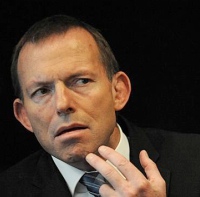- About Us
- Columns
- Letters
- Cartoons
- The Udder Limits
- Archives
- Ezy Reading Archive
- 2024 Cud Archives
- 2023 Cud Archives
- 2022 Cud Archives
- 2021 Cud Archives
- 2020 Cud Archives
- 2015-2019
- 2010-2014
- 2004-2009
 |
Opening Hearts To Asylum Seekers |
Around the world, governments have shown a range of attitudes to asylum seekers. At one extreme they have attempted to evict them from their own lands, sometimes using violence. At another, they have welcomed them with open arms as victims of failed international policy, knowing that in time they will make valuable contributions to local society. In between these extremes, most governments recognise that refugees and asylum seekers constitute a problem but that the international community must react humanely to their tragic situations.
In Australia, asylum seekers have been made the subject of opportunistic politics. While Australia’s geographic isolation has allowed us the luxury of being primarily a country for resettlement of refugees, the arrival of asylum seekers directly from the world’s trouble spots has brought out the worst in us. We welcomed Indo-Chinese ‘boat people’ in large numbers in the late 1970s, which was only appropriate for a country which had participated in a war that had destabilised that region.
In the early twentieth century, the Howard Coalition Government vilified asylum seekers as ‘illegals’, deliberately misrepresented them as ‘queue jumpers’ who threw children overboard and watched as hundreds drowned in capsized vessels. Perhaps most outrageously, it implied that ‘sleeper’ terrorists could be among the asylum seekers who came by boat. The Rudd Labor Government began with the good intention of ensuring that Australia would not detain children. Successive reports have shown the psychological harm that detention does to children in particular. The Gillard Labor Government did not even seem to have the right intentions, given that it negotiated with other countries to take asylum seekers from Australia for detention and with the Indonesian Government about stopping the vessels travelling reaching Australian waters.
The Abbott Coalition Government has returned to the ‘Pacific solution’ with gusto. It has treated the asylum seeker problem as nothing more than a small part of a broader border security policy. It has legislated to remove the rights of asylum seekers to have access to Australian courts and tribunals. Its ‘out of sight, out of mind’ approach has enabled the Minister to control information in a way that is barely compatible with democratic accountability.
Perhaps what is most alarming is that the ‘softly, softly’ approach advocated by some Labor politicians has been worthless. Timid politicians have argued that if a policy moves too far ahead of public opinion, there will be a backlash. But the situation in Australia in 2014 suggests that having the ‘problem’ under control does nothing to make people more sympathetic to asylum seekers. Indeed if recent opinion polls are to be believed, the stopping of boat arrivals seems to have hardened opinion against them.
There are probably many complex reasons that this apparent hardening has occurred. By every indicator, asylum seeker advocates have rebuffed all arguments for these drastic policies. A positive approach to asylum seekers would be less costly than the current hard line. It would add to our security, not weaken it. It would ensure that Australia was held in greater respect internationally. It would benefit Australian society.
Perhaps we have not understood fully the ways in which our political culture has been changed. Community values have been weakened to the extent that individualism now motivates most of us. While logical arguments operate on one level, the politics of fear and division operates on a much more visceral plane. The logic of a more humane policy does not touch the fear which has been engendered by politicians wielding the ‘wedge’ for partisan advantage.
Great folksingers know that the human body maps these divisions. While words speak to the brain and music touches the gut, songs have the potential to speak to the heart between. The following song is an attempt to bridge the gap between the head, heart and emotions. It draws on the possibility that Australians are inviting disaster by taking such a hard line on asylum seekers. By appealing to self interest, it hopes to reach those Australians who can no longer hear the logical arguments which should inform their decision making. A likely tune might be ‘Streets of Laredo’.
Boats Have No Rights
As I sailed out in the Indian Ocean
As I cruised over the Timor Sea
I met a young man forlornly weeping
And asked the cause of his misery
He said ‘You are rich, you are Australian
I see by your smugness you are from there
Please explain why you hate me so badly
Why for my poor life you so little you care
‘I fled my homeland to sail on the ocean
I risked everything to seek a new life
I hungered for freedom and a safe country
For my precious children & beautiful wife
‘We went to a camp over the border
All we had left now was our lives
But we found this held no future
Our spirit seeped from us by day and by night
‘One day a man offered to take us
Over the sea to a land full of hope
We used our last pennies to pay for a passage
On his old and crowded boat
‘The boat was leaky and rolled in the swelling
I was so sick I thought I would die
It finally sank when it got to your waters
So many drowned though land was in sight
‘Was it wrong that I wanted so much for my loved ones?
What in my place would you not do?
There was a time you welcomed all strangers
And helped anyone weaker than you’.
I said that I disagreed with the government
But they were elected and what could I do?
He gave a deep sigh and eyed me with pity
And said ‘I do feel sorry for you.
‘Stop the boats is a vile slogan
Boats have no rights or dignity
Be honest and say Stop the people
Admit that you lack humanity’.
As I hide behind the vastness of oceans
And hope the tide won’t turn against me
His biting words will haunt me forever
For as I have sown, one day I’ll reap.
A former academic, Tony Smith has written extensively on a wide range of subjects as diverse as folk music and foreign policy issues in the Australian Review of Public Affairs, the Journal of Australian Studies Review of Books, Overland, the Australian Quarterly, Eureka Street, Online Opinion and Unleashed.
